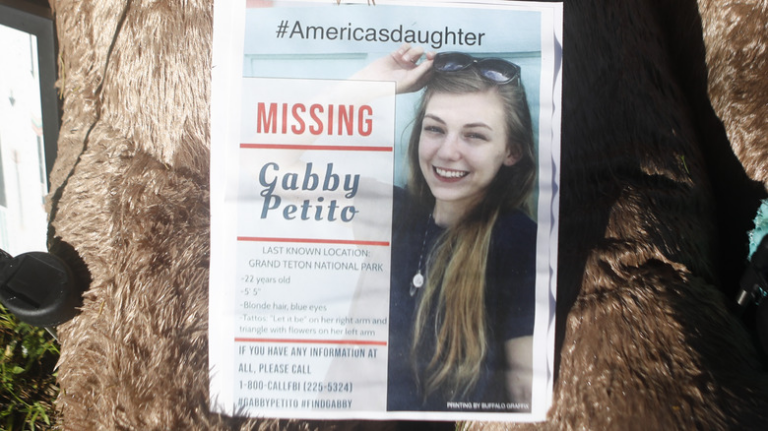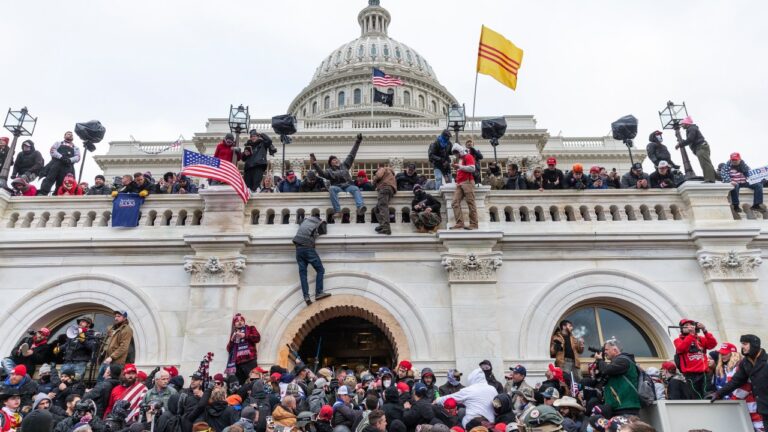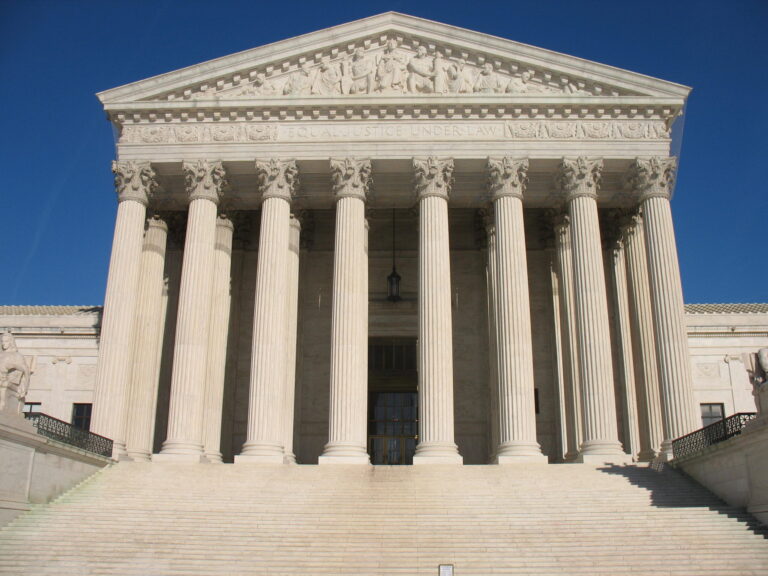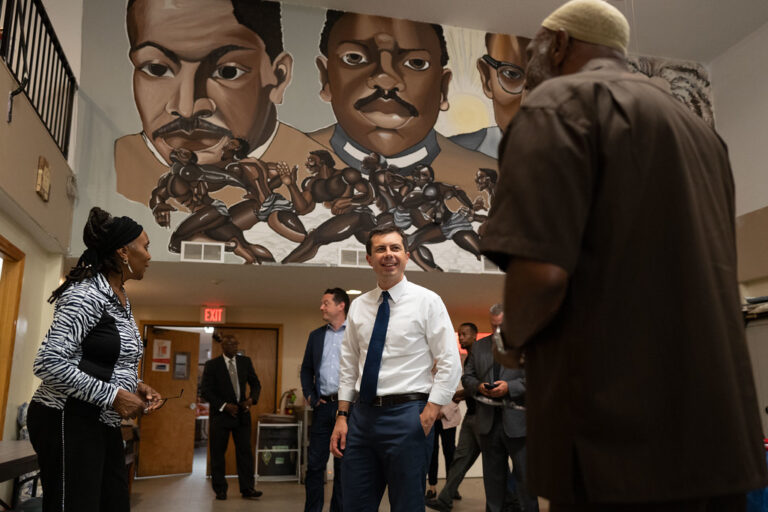All content categorized with: Current Events
Filter
Post List
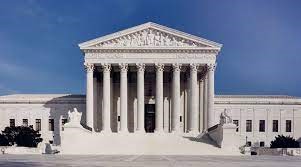
Ketanji Brown Jackson’s Historic Supreme Court Nomination
By: Madelyn Hughes, Associate Editor, Vol. 27 On February 25, 2022, President Biden made history when he nominated Judge Ketanji Brown Jackson to the Supreme Court to replace the retiring liberal Justice Stephen Breyer.[i] She is the first Black woman nominated to the Supreme Court and, if confirmed,…
Missing White Woman Syndrome: How Gabby Petito Reminded Us that Women of Color’s Disappearances are Largely Ignored
By Alexis Franks Associate Editor, Vol. 27 When Brian Laundrie pulled his white van into his family’s driveway on September 1st, 2021, friends and family all began asking the same question: where was Gabby? Brian and his fiancé, Gabby Petitio, had set out on a cross-country road trip one month…State Sponsored Radicalization
Where was the FBI in the months leading up to the violent siege on the U.S. Capitol in 2021? Among the many questions surrounding that historic day, this one reveals the extent to which double standards in law enforcement threaten our nation’s security. For weeks, Donald Trump’s far right-wing supporters had been publicly calling for and planning a protest in Washington, D.C. on January 6, the day Congress was to certify the 2021 presidential election results. Had they been following credible threats to domestic security, officials would have attempted to stop the Proud Boys and QAnon from breaching the Capitol perimeter. Yet when the day came, the mob of pro-Trump extremists seemed to catch law enforcement by surprise. They seized the Capitol, ransacked congress members’ offices, and openly posted photos of their destruction and their weapons online. In the preceding two decades, the U.S. government has poured money into a behemoth national security apparatus. The FBI’s annual budget ballooned from $3 billion in 1999 to nearly $10 billion today. Much of this 300% increase went to countering terrorism with a mandate to surveil, investigate, and prosecute “homegrown terrorists.” In no uncertain terms, the directive was for the FBI to target Muslim communities.
Legalization is Not the Endpoint: Observations from Nine Years of Marijuana Legalization
By Nathan BennettAssociate Editor, Vol. 26 In February, New Jersey became the 14th state to legalize adult recreational use of marijuana, followed days after by the Virginia legislature approving a similar measure.[1] When Colorado became the first state to legalize the drug in 2012, then-Governor John Hickenlooper cautioned: “don’t…
The Danger of Using “Terrorism” to Describe the Capitol Attack
By: Aashna RaoAssociate Editor, Vol. 26 On January 7, 2021, the day after the attack on the Capitol, President Joe Biden said of the Trump supporters who participated, “Don’t dare call them protestors. They were…domestic terrorists.”[1] Biden’s use of the word “terrorists” to describe the violent mob was intended…In Fear of Black Revolutionary Contagion and Insurrection: Foucault, Galtung, and the Genesis of Racialized Structural Violence in American Foreign Policy and Immigration Law
This article investigates the power relation between the political anatomy of the Black soul and non-somatic expressions of white supremacy-based violence. Utilizing Michel Foucault’s theories of discipline and punishment in conjunction with Johan Galtung’s theory of structural violence, I posit that the exercise of state-sanctioned discipline and punishment in furtherance of white supremacy constitutes racialized structural violence. Thus, this article contributes to the current public discourse concerning the role white supremacy plays in America by establishing a new construct that can be used to dissect the nature of racial oppression. Furthermore, this article analyzes the genesis and construction of racialized structural violence in American foreign policy and immigration law using America’s response to the Haitian Revolution as a case study. When combined, akin to discipline, American foreign policy and immigration law is a white supremacy-oriented, complex bundle of power technologies designed to evoke docility from Black and Brown nations. Both allow America to engage in dissociative white supremacy. Over time, America’s “right” and power to discipline and punish Black and Brown nations has been normalized as a rational function of our global society.No Voice, No Exit, But Loyalty? Puerto Rico and Constitutional Obligation
The Michigan Law Review is honored to have supported Professors Charles and Fuentes-Rohwer's Essay on the subjugated status of Puerto Rico as an "unincorporated territory." This Essay contextualizes Puerto Rico not as an anomalous colonial vestige but as fundamentally a part of the United States' ongoing commitment to racial economic domination. We are thrilled to highlight this work, which indicts our constitutional complacence with the second-class status of Puerto Rican citizens and demands a national commitment to self-determination for Puerto Rico.U.S. Race Relations and Foreign Policy
It is easy for Americans to think that the world’s most egregious human rights abuses happen in other countries. In reality, our history is plagued by injustices, and our present reality is still stained by racism and inequality. While the Michigan Journal of International Law usually publishes only pieces with a global focus, we felt it prudent in these critically important times not to shy away from the problems facing our own country. We must understand our own history before we can strive to form a better union, whether the union be the United States or the United Nations. Ambassador Susan Page is an American diplomat who has faced human rights crises both at home and abroad. We found her following call to action inspiring. We hope you do too.
Supreme Court Reform: Expansion, Balance, Limits
By Abigail HesterAssociate Editor, Vol. 26 The Supreme Court is in crisis. With the death of Ruth Bater Ginsberg and the rushed confirmation of Amy Coney Barrett, the national attention is on the Supreme Court like never before.[i] Now is the time to act to reform the Supreme Court.
Pete Buttigieg’s Bold Ideas?
By Jonah Rosenbaum Associate Editor, Vol. 25 As Pete Buttigieg surged into being a serious contender for the Democratic nomination, aided in part by a not so subtle push from a fawning media, a less flattering narrative has emerged—the white, small town Mayor of South Bend, Indiana…
